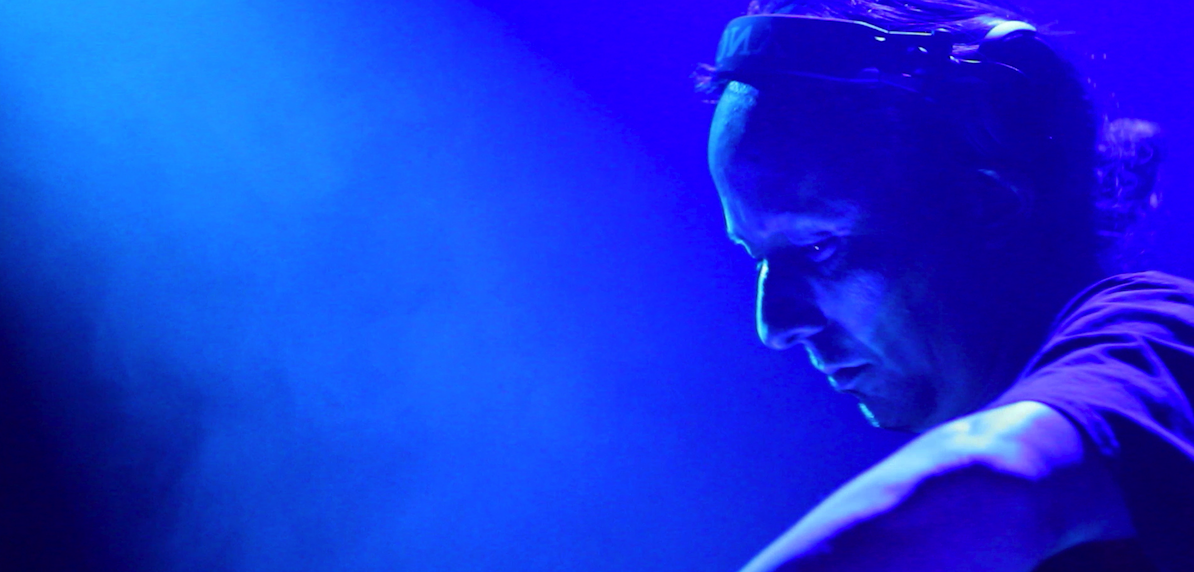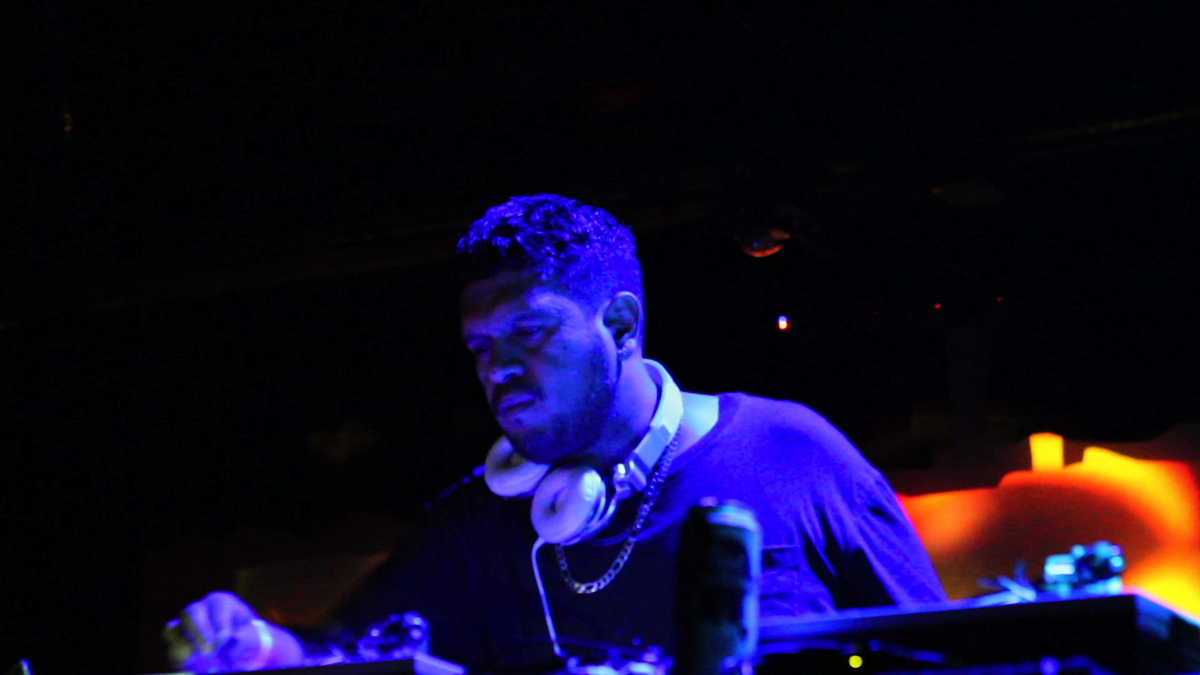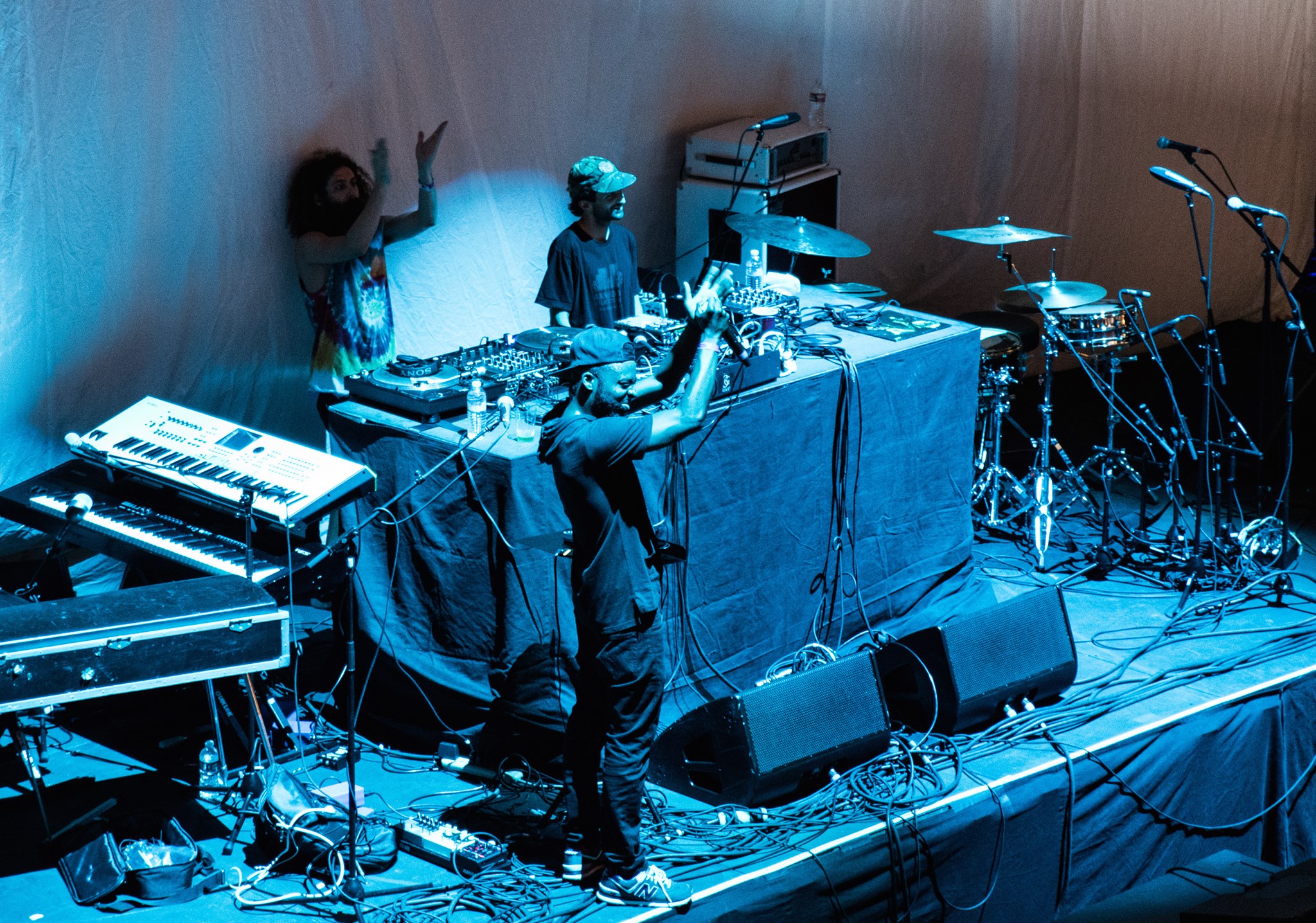Q&A: Low End Theory’s Daddy Kev
Kev, with a little help from the Gaslamp Killer and DJ Nobody, looks back at ten years of aural experimentation—and looks forward to this weekend's festival.

Q&A: Low End Theory’s Daddy Kev
Kev, with a little help from the Gaslamp Killer and DJ Nobody, looks back at ten years of aural experimentation—and looks forward to this weekend's festival.

“We call it church,” says Daddy Kev, cofounder of the now-legendary Low End Theory weekly in LA’s Chinatown, and patriarch of the extended family of artists clustered under its vast sonic umbrella of experimental broken beat, hip-hop, jazz, bass music…and everything in between. “We approach it with a religious mentality,” he says. “It’s regular, it’s once a week, we all come together.”
Now in its tenth year running as a weekly (that’s 520 some-odd parties, for those counting) at the Airliner on North Broadway, a certain amount of zealotry is required on the part of the artists who keep it fresh week in and week out, and by the fans who routinely stand in a line that snakes around the block before doors open in order to hear what off-kilter direction the likes Kev, the Gaslamp Killer, DJ Nobody, Flying Lotus, Nocando and many others in the regular rotation are going to take that particular Wednesday. Hitting the 500-person capacity at their grungy (yet oddly charming) home every week is a matter of when, not if.
But to call them zealots and leave it at that would be a superficial read of what has steadily and organically grown into a night where no less than Radiohead frontman Thom Yorke might drop by for a guest DJ spot. There’s a raw passion for the music, and a mutual respect—not just for each other, but also for their burgeoning community of fans—that fosters a two way, ever-evolving dialogue between performer and patron.
This much is evident after spending an hour talking to a few of the central figures of Low End Theory, or by speaking with members of the broader family who have nothing but reverence for what the night has become. On August 8th, Low End Theory makes its second annual foray into the festival world at the Shrine, featuring many of the same people who got them to this point. That they’ll be playing to 5,000 people instead of 500 is secondary to doing what they’ve always done: push boundaries and include their fans wherever and however possible.
As they gear up for their biggest weekend of the year, we got Daddy Kev, the Gaslamp Killer and DJ Nobody to wax poetic about how this all came to be from the night’s humble beginnings.

What were your ambitions the very first time you opened up at the Airliner with Low End?
Daddy Kev: Very limited. I mean, at that point, for me, it was just about getting to the next week. Trying to get through that first month and seeing if people were going to turn out for this. Was this going to be something that people wanted to do and keep doing? At that point in my career, I’d already done several weekly parties, some that went well like Concrete Jungle LA, and some that didn’t…some that only went for a month or two. To be honest, I wasn’t able to imagine it past the first 30 days, just knowing how it goes and how fickle clubs are here. I mean, doing clubs in LA, it’s one of those things where you’re not really allowed a slow night. I think that’s a misconception that people have when they start doing events out here, that the venue will just say “Okay, we get it, we want to see it grow, we’re down.” In actuality, if you have a slow night, the very next conversation you’re going to have with the venue is “We’re not doing this anymore.”
At the same time, it’s sort of careful what you ask for, right? Doing a weekly for this long, you have to get creative to find ways to keep it from being a grind and to keep your sound fresh from week to week.
Daddy Kev: Yeah, right? Keep in mind, our first year was pretty slow. I wanna say of those first 52 weeks…maybe five were really crackin’. So you got like 47 other weeks where it’s kinda slow, with maybe only 100 people. It’s not easy. So for me, the real hard part of Low End Theory was those first few years, keeping everyone inspired and dedicated. As you said, doing something every week gets old quick—even for myself. How do I keep them interested, but also how do I keep myself interested?
We meet on a regular basis to critique each other and what we’re doing—and to me that’s a vital part of our existence, because I’m never 100 percent pleased with the night. Maybe sometimes—maybe one or two nights out of the year we execute perfectly. But usually there was something that was a miss; either someone had a set that wasn’t technically perfect, or we had a set change that was a minute late. We try to run the club on the dot, like a Japanese train. I’m very observant and cognizant of it all. That idea of perfection, trying to execute perfectly both technically and artistically…we’re all on the same page with that. And that’s not just me and the residents: That’s our staff, that’s our production team, and we’re all about perfect execution every single time. Sometimes it can be counterproductive, but I think you can do it in a way that’s nurturing. I don’t think it’s a bad thing to strive for.
So what does it mean to you, after ten years of doing Low End every single week, to be putting on something of the size and scope of your own festival at the Shrine?
Daddy Kev: To me, it’s a culmination of many years of hard work and dedication—and believing that we could do a festival on this level with predominantly Los Angeles–based artists. Ten years ago, it seemed like a tall order. Today, it’s more than possible and it’s happening—and I think really if anything, it’s a testament to the growth that we’ve seen from the artists involved in Low End Theory, and how they’ve grown in tandem with our reach. It’s a beautiful thing.
What sort of factors have come into play in 2015 that are allowing you guys do an event of this scale?
Gaslamp Killer: Continued, relentless work for our fans—our kids who come every Wednesday. We treat it like as serious as we would treat a festival. Every week Daddy Kev, DJ Nobody, D-Styles and I, we run a very tight ship and we’re very disciplined and focused and that’s how it is every week. I think that kind of work stands out among a lot of our peers, maybe. And that type of thing doesn’t go unnoticed after almost ten years.

DJ Nobody: I think it has to do with the people from the scene eventually putting out their own music, and becoming loved and respected artists in their own right. When we started the club, there weren’t that many people doing Ableton sets with their own music; it was mostly just DJs. Now it’s a lot more common, and I think the development of the live aesthetic has helped. Even though it’s far more popular now, we’ve also always held on to our niche, hard-core market and fans. Because electronic music is kind of a mainstream thing now, people still want our little niche because it’s the most raw version.
Nowadays, Flying Lotus has massive crossover appeal, and Thundercat is producing albums for Kendrick Lamar. Why do you think that musical tastes have finally caught up with the sounds you guys have been putting out there for more than a decade?
DJ Nobody: I guess it’s a culmination of it catching up, but Kendrick definitely has a lot to do with it. People are just getting sick of rap for the past few years, and have finally hit a wall with it. I love getting crazy in the club as much as anyone, but I think more and more people are just wanting to hear some shit where they can think again. Simultaneously, like you said, we’ve been on that—we’ve been getting more lyrical with our shit out here on the West Coast for a long time. I think it all finally coincided.
“People are going to come our way eventually, because we’re spitting truth and we’re spinning truth.”
Gaslamp Killer: I always say this when I get this question: As the world turns and gets a little bit darker, people are looking for a different kind of freedom and a different kind of salvation through music—and whether we know it or not, we are all going to the concerts and to the clubs and to the festivals to be around each other. It’s not just about the music. Like, anybody who is willing to brave Low End and get in the middle of that crowd of sweaty kids going apeshit is not just a fan of the music, they’re also a fan of that experience that you get with each other. That tribal vibe, you know what I’m saying? So as times get a little bit darker, people want a different kind of release, of entertainment, one that’s a little less…just not that bottle-service shit, man! You know what I mean? That’s not cool, that’s not what you should be spending your money on. That’s a really tacky way to live, in my opinion, even if you have that kind of money. So for me, this is inevitable. People are going to come our way eventually, because we’re spitting truth and we’re spinning truth. Producing truth. It’s all from the heart, and it’s all super-raw, and it’s the same shit we’ve been doing. It’s dark, it’s instrumental, it’s dirty psychedelic music. Now people are starting to come around because the times have changed. It’s more suitable for now, I guess.

Daddy Kev: Having people like Flying Lotus as a champion of the movement is big, but to me, there’s really certain intangible elements here that have made it as successful as it’s been. When I try to explain Low End Theory to people who don’t know what it is, the first thing I’ll say is that it’s a community event, it’s meant to be inclusive of people and anyone that’s interested in making beats and producing. It’s not just one or two or three or four dudes, it’s like everyone that wants to be involved.
There’s a lot of criticism today of the big festival scene, that people are less concerned with who is playing as long as it’s a decent backdrop to get wasted to with their friends. How are you guys trying to maintain the same intimacy you had at the Airliner while putting on a festival at the Shrine?
Gaslamp Killer: Well, nobody has a one-room festival. It doesn’t happen. For right now, ours is still one room, and we are going to be addressing our audience as if it were the 500 that we talk to every week. Even if it’s 5,000, it’s pretty much the same for us. It’s gonna be interactive; we’ve invited youngsters from the scene to submit beats to get on stage with the crew, with me and FlyLo and everyone else. We invite people in to actively participate with us.
Also, I feel like Low End has two hosts. Nocando is hosting, but I am also hosting in a different way—it’s not as much as entertainment as it is I’m trying to show appreciation for people coming out. It’s a different kind of thing that we each do—but together, we keep the crowd engaged and honor them and give them a lot of love and respect. I know that they feel differently than at other festivals when there is no host and changeovers aren’t filled with jokes and fun anecdotes and interesting vibes that we share with the kids, you know what I’m saying?
‘You turn on the news if you want to see how fucked things are. Don’t come to Low End Theory to check that out.”
What does this festival represent as far as the Low End ethos and how is it helping that evolve?
Daddy Kev: We’re there to kind of exist outside of reality—and we try to provide that for our audience, too. We want to take people to a different place and make them forget how fucked up the world is. You turn on the news if you want to see how fucked things are. Don’t come to Low End Theory to check that out.
The festival ultimately represents our evolution, and the idea that we’re trying to introduce ideas that are grander than the last one. Something like a festival initiative with Goldenvoice—it’s hard to think of a grander destination. I’ve been a fan of Coachella and everything they’ve been doing for years, so for them to even be interested and want to grow this with us—which is very much the plan—is almost beyond my comprehension. A part of me still stays rooted in where all this started, and the idea that we could operate on this level is still…I can’t process it. It’s a blessing and I’m just glad the guys are down for it, and want to take the chance.
The final and most important bonus round question: What is your favorite burrito in Los Angeles?
Daddy Kev: Tacos Via Corona for breakfast burrito. I’m not a meat eater, but I like a shrimp burrito and if I’m in that mood, I would probably drive all the way to Tacos Baja Ensenada in East LA.
DJ Nobody: I’m gonna have to go with the medium chicken burrito at My Taco. That’s my favorite place, but none of my friends want to try it because it’s called “My Taco.” Al & Bea’s bean & cheese, also.
Gaslamp Killer: Four Cafe breakfast burrito. They only serve it on the weekends. Exclusive, brother!

